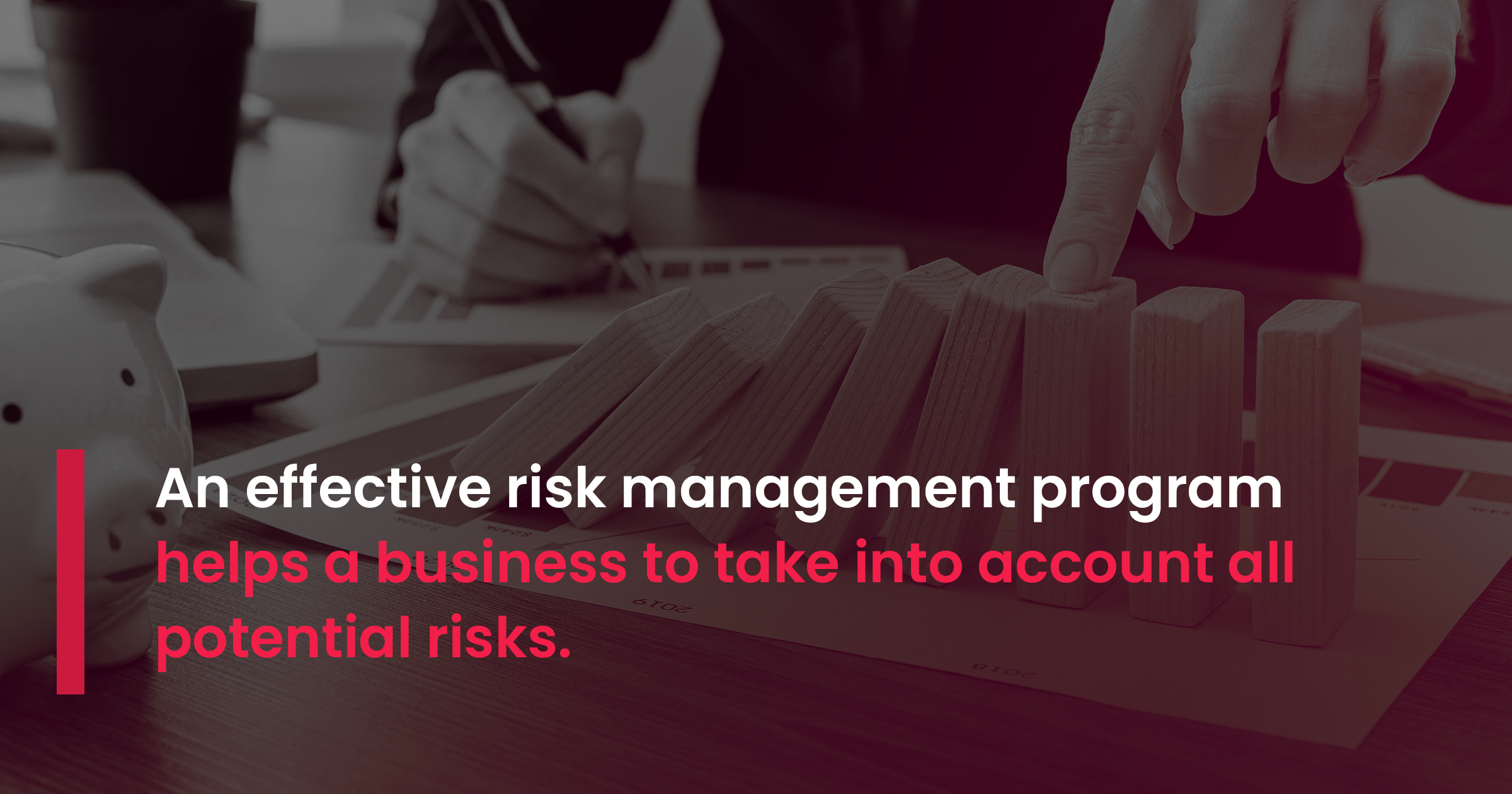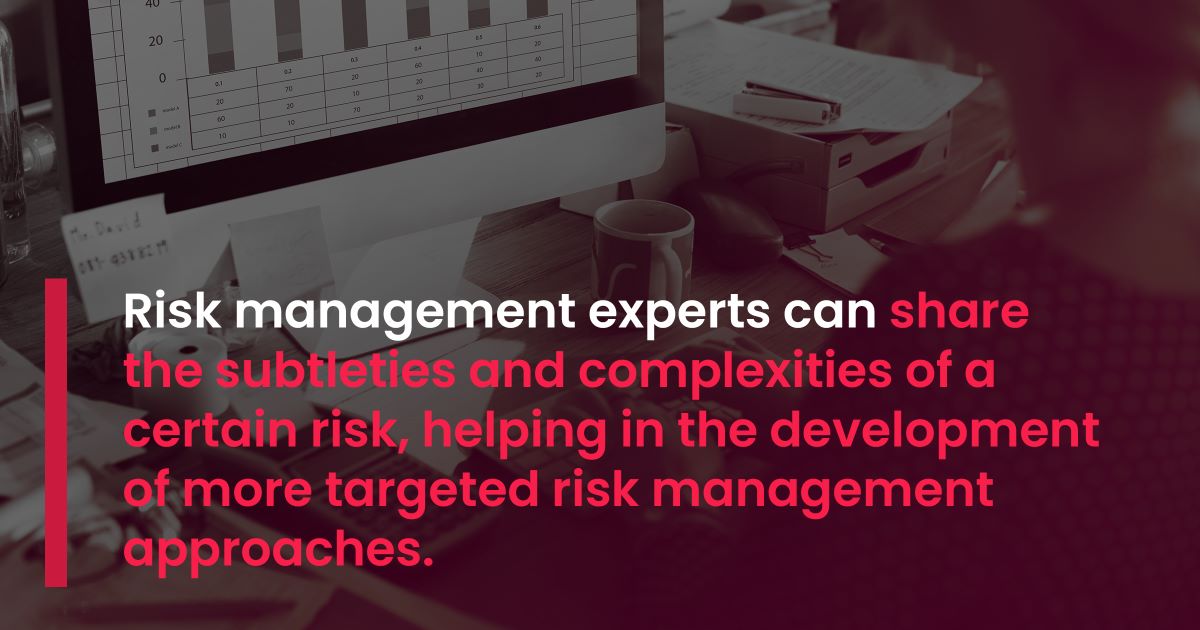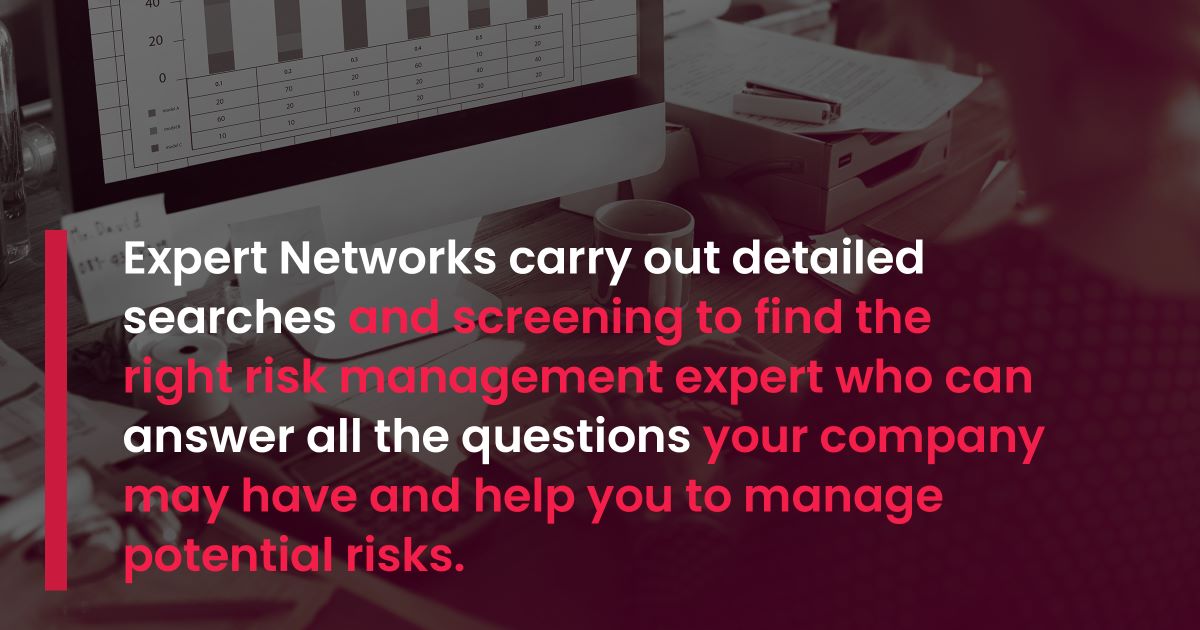Before focusing on how Expert Networks can help in risk management, it is significant that probably never before in history have risk prediction and mitigation been more crucial for organizations than they are today. With the tremendous pace of globalization, the risks that organizations encounter nowadays have changed and are now more sophisticated. For instance, the widespread use of digital technology has led to the ongoing emergence of new threats.
It is commonly agreed that risk analysis has to be a major factor in the responsibilities and achievements of business owners, executives, and investors. Companies that fail to handle business risks appropriately may end up facing problems ranging from scandals, financial penalties, safety breaches, and strategic failure.
Luckily, with the expanding availability of Expert Networks platforms, risk mitigation, and management can be promptly addressed. How Expert Networks such as RightAngle Global can be leveraged for risk management is the topic of today’s post.
Top five risks facing businesses globally in the last five years
According to a survey conducted among risk management professionals, cyber incidents such as cybercrimes, data breaches, and penalties are rated as the top risks to firms internationally. The recent coronavirus pandemic that triggered multiple supply chain disruptions and caused business interruptions was ranked as the second top-rated issue by risk management professionals on a global scale.
Economic developments, energy supplies, and price fluctuations, as well as unexpected or unwanted changes in regulatory frameworks across countries, are the remaining three risks that companies must address in their strategies.
The world’s greatest business risks from 2018 to 2023
Source: Statista
What is risk management and why is it important for your organization?
The process of discovering, evaluating, and handling the risks to your organization’s resources and earnings is known as Risk Management. Risks have many different causes, such as financial unpredictability, legal liabilities, technological problems, strategic management blunders, and natural calamities.

The connection between risks and the potential cascading effects these could exert on the strategic objectives of your company can also be analyzed by risk management.
What is the role of Expert Networks in enterprise risk management?
Some businesses have dedicated risk management departments that focus their activity on strategic risk, risk evaluation, handling risk, and risk planning for each new product and plan.
Smaller businesses may only have a single employee dedicated to risk evaluation, or this might just be a task among the other responsibilities of a certain role.
In both scenarios, Expert Networks can definitely help.
Expert Networks can be actively involved in risk management as, for each individual project, they can search and identify appropriate specialists who are able to offer insightful analysis, specialized information, and timely data to help your organization to anticipate risks and mitigate these.
Expert Networks can assist businesses to identify and manage potential risks such as those linked to compliance, images, and marketplace conditions.
 Expert Networks help companies to navigate challenging regulatory environments. Regulations may undergo rapid modification and significantly affect how businesses operate in various industries. Experts can therefore help companies to comprehend and comply with constantly evolving regulatory standards thereby reducing an organization’s legal and compliance concerns and risks.
Expert Networks help companies to navigate challenging regulatory environments. Regulations may undergo rapid modification and significantly affect how businesses operate in various industries. Experts can therefore help companies to comprehend and comply with constantly evolving regulatory standards thereby reducing an organization’s legal and compliance concerns and risks.- Organizations can keep up with emerging risks. Risk management experts can provide up-to-the-minute knowledge on possible risks, fluctuations in the market, and legislative changes, allowing organizations to adjust their risk management strategy as necessary.
- Risk management experts provide insightful guidance to support risk management-related decision-making. They can offer unbiased and knowledgeable viewpoints, empowering businesses to make more deliberate and considered decisions.
- Specialists screened by an Expert Network help to verify the effectiveness of your organization’s risk management procedures. Engaging outside specialists can help to provide an objective evaluation of risk management procedures.
- Certain risks could involve highly specialized knowledge that is difficult to gain from in-house experts. Expert Networks can close this knowledge gap by giving organizations access to risk management experts with niche knowledge who can deal with particular risk issues.
What does a risk management specialist do?
Risk management experts assess financial risks that could have a negative effect on your organization. They can also find solutions to lower the impact of any risks or avoid these altogether, after examining a company’s financial standing and fiscal policies to protect against potential losses.
Such a specialist will have a degree in finance, accounting, or a comparable discipline. Although most companies favor candidates with a Bachelor’s degree, some positions may call for a Master’s degree. Finance-related employment experience could also be necessary. To carry out the obligations of the specialist role successfully, it is also advantageous to combine and apply critical thinking and analytical abilities.
 Risk management experts can examine files and cash flow data to ensure no fraudulent activity is occurring. These professionals can devise several scenarios to determine which would pose a risk to your organization’s assets—both human and non-human.
Risk management experts can examine files and cash flow data to ensure no fraudulent activity is occurring. These professionals can devise several scenarios to determine which would pose a risk to your organization’s assets—both human and non-human.
Are you searching for experts who can offer insights and advice on risk management? Contact RightAngle Global where we carefully assess the credentials and relevance of each specialist to ensure that they are qualified to respond to specific questions. Our respected clients choose to invest in our services thanks to the superior level of competence, rock-solid compliance, and top-notch customer service we provide.
Final word
Expert Networks are essential to risk management because they offer access to a variety of knowledge and timely, relevant data. Businesses can make well-informed decisions that promote success and growth by utilizing the knowledge and experience of former or current members of the industry. Expert Networks help firms to gain an edge over others and accomplish their objectives by recognizing emerging trends and evaluating potential risks.
Suggested reading:
How Expert Networks can help companies to keep up with industry trends?
How can Expert Networks help your company to foster a cybersecurity culture?
The future of Expert Networks in emerging markets
Share to

